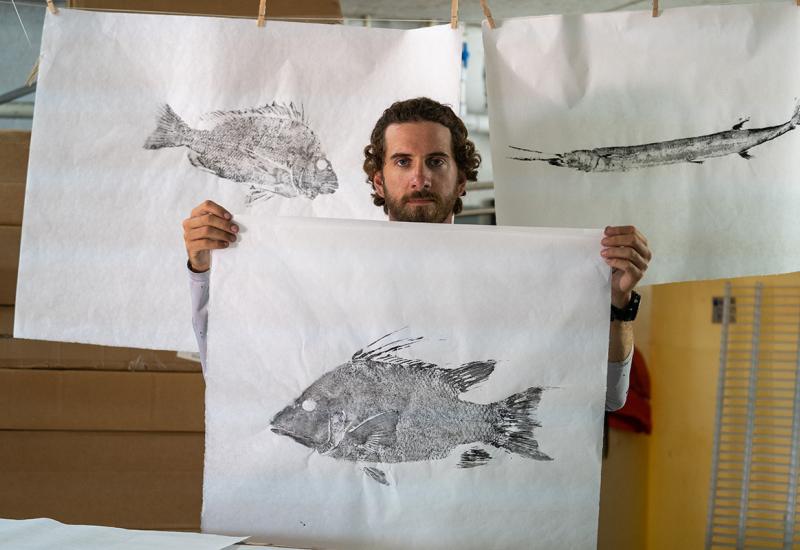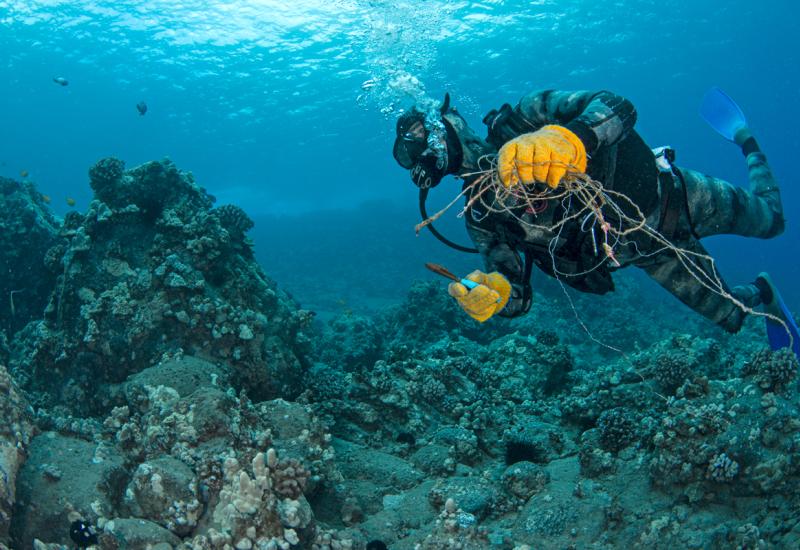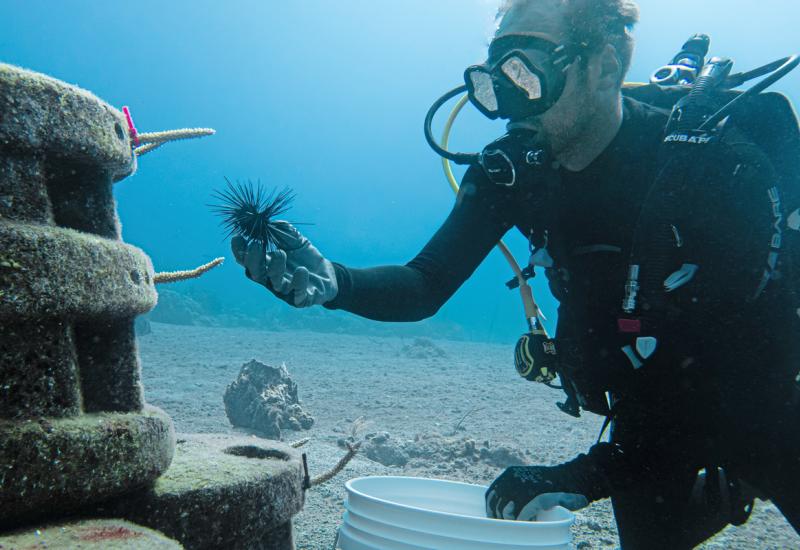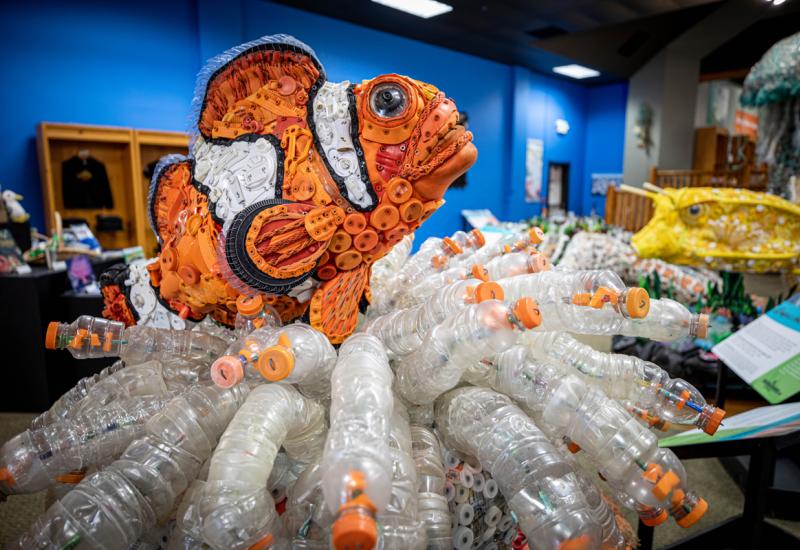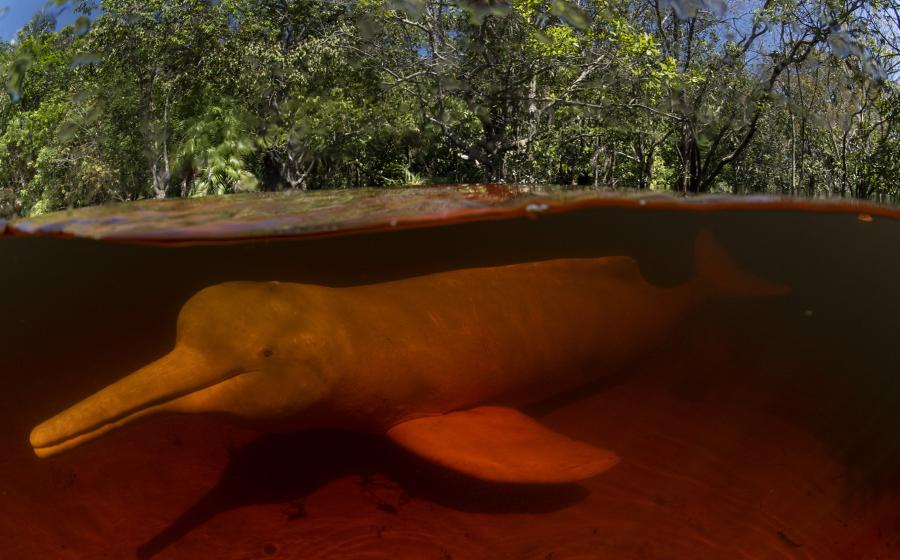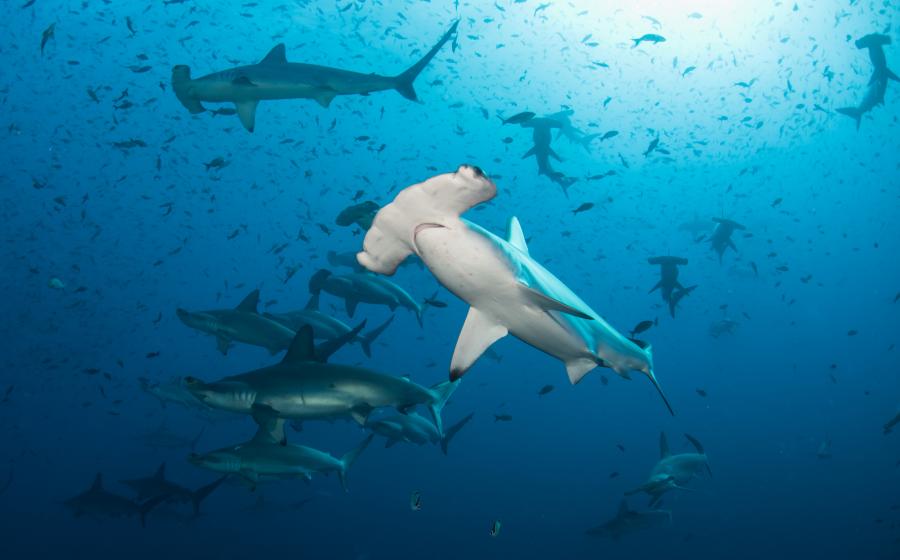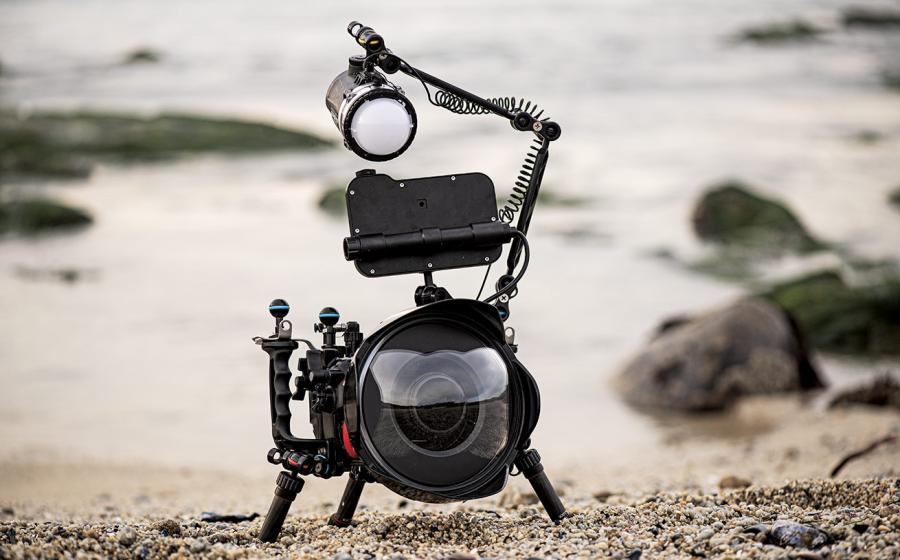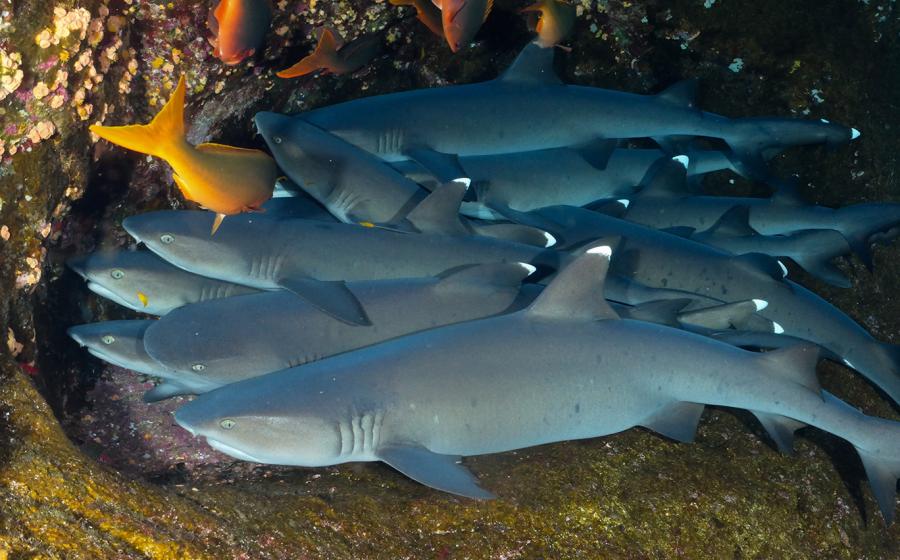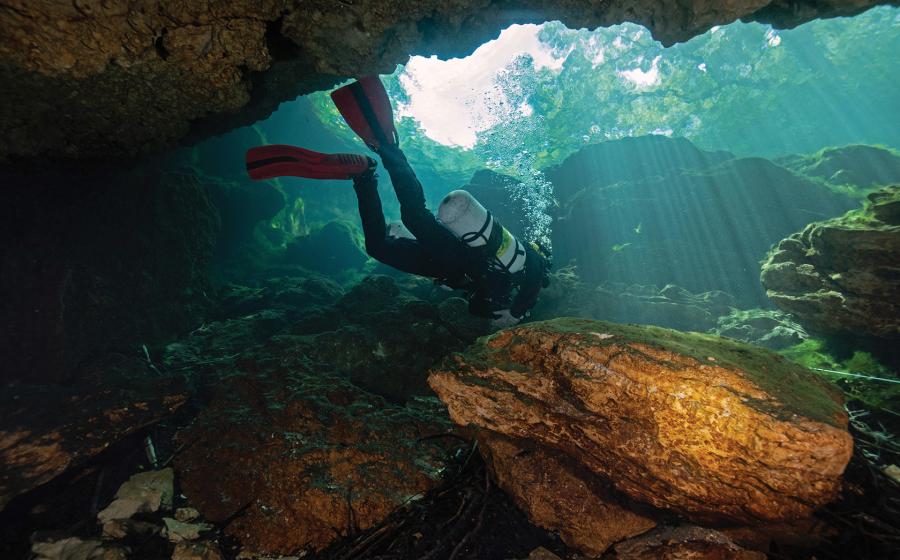Take the Plastic-Free July Challenge

Christian SkaugeNorway’s Gulen Dive Resort came up with an unorthodox way for divers to keep its house reef clean: recycling bins for metal, plastic and other waste, 25 feet beneath the surface.
Ready to finally say "no" to single-use plastics for good? How about, at least for the month of July? The Plastic-Free July Challenge has grown in popularity each year since it's beginning in 2011. In 2019 alone, an estimated 250 million people from 177 countries took part in the challenge according to a survey conducted on behalf of the Plastic-Free July campaign.
Follow these seven tips to get started on your journey to say "no" to single-use plastics at home and on your next dive trip.
TIPS FOR GOING PLASTIC-FREE AT HOME
1. Green your Bathroom
There are many alternatives to the ubiquitous plastic items found in our bathrooms. Bamboo or electric toothbrushes are excellent alternatives to the disposable plastic kind. Ditch the disposable razor in favor of a stainless steel safety razor. Replace your bottles of liquid shampoo and conditioner with concentrated bars, and use traditional soap bars instead of bottled body wash.
2. Shop Smart
Bulk stores allow you to bring glass jars or reusable containers and buy what you need, avoiding both plastic packaging and food waste. And if you’re shopping at the supermarket, don’t forget to bring reusable produce bags for your veggies and avoid the plastic bags at the store.
3. Replace Cling Wrap with Beeswax Wraps
Plastic bags and cling wrap pollute waterways and harm marine life. Wax wraps are a sustainable, reusable alternative for covering food.
4. Buy Secondhand
It’s clear we need to rethink the way we consume, and this starts with buying less. Check online marketplaces for used items before buying brand-new. If you do need to purchase something new, do some research and find a company that uses ethical, sustainable practices.
TIPS FOR GOING PLASTIC-FREE ON YOUR NEXT DIVE TRIP
5. Bring a Reusable Cutlery Set
Almost 2 million pieces of plasticware were collected during the Ocean Conservancy’s 2018 International Coastal Cleanup. Avoid adding to the problem and pack a fold-up cutlery set that contains a spoon, fork, knife, reusable straw and chopsticks.
6. Opt for Fresh Food
Choose fresh snacks like local fruit, and dine in at a cafe rather than taking your food to go. Many popular dive destinations don’t have proper recycling infrastructure in place, so minimizing the amount of packaged food you eat benefits the local community and marine environment.
7. Pack a Water Purifier
When traveling to a destination with water that is potentially unsafe to drink, bring a stainless-steel water bottle and small water-sterilizing device, or tablets to pop in your drinking water.
Ready to take the challenge? Head over to plasticfreejuly.org to sign-up and for more tips on going plastic-free.

